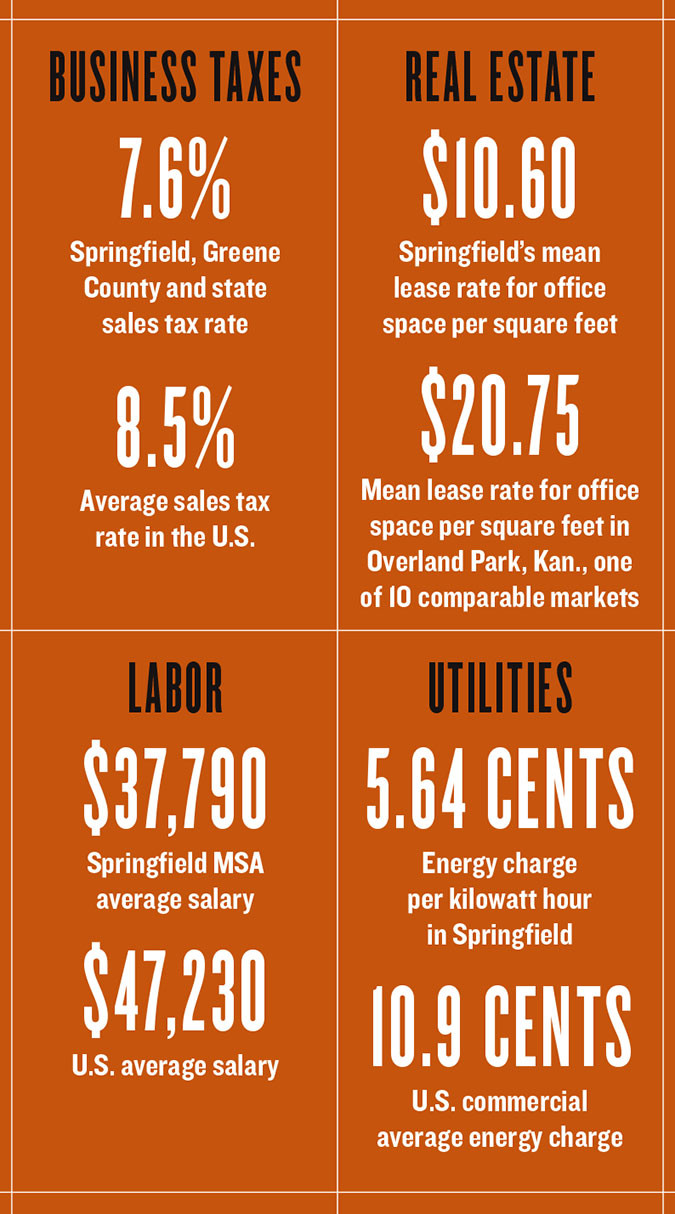YOUR BUSINESS AUTHORITY
Springfield, MO
YOUR BUSINESS AUTHORITY
Springfield, MO

When St. Paul, Minn.-based political fundraising company FLS Connect LLC decided in late November to open its fourth call center in Springfield, Operations Director Matt McGuire said the decision was based on factors both quantifiable and intangible.
“You evaluate things like the talent pool, location, availability of management and competition,” McGuire said.
He said the company chose a space formerly occupied by Strategic Fundraising Inc. over others in Utah and Wisconsin because the now-defunct company also left behind an equipment-filled building and a trained workforce that shaved four months off a possible start date. He said the area’s cost of living allows FLS to quickly transition a Phoenix-based manager to run the Springfield facility’s estimated 200-employee staff.
The Queen City ranks among the nation’s least expensive markets when measured against comparable cities and metropolitan areas for costs of living, labor and utilities.
“There’s no silver bullet – it’s kind of a recipe here,” said Springfield Area Chamber of Commerce President Matt Morrow.
“Every ingredient is important but none acts by itself.”
Springfield ranks consistently within the top half of 10 cities with similar populations in terms of retail, office and industrial lease prices. In tax factors, Missouri’s 6.25 percent corporate income tax ranks third lowest nationally on the 2016 State Business Tax Climate Index compiled by tax policy research think tank Tax Foundation.
The Show-Me State falls to No. 17 in the group’s overall rankings when accounting for income and sales tax rates.
Jerry Chandler, human resources manager at North Star Battery Co., said while small manufacturing facilities in China and Europe churn out racks and charging systems for the Stockholm, Sweden-based company, each battery exported to 120 countries is manufactured at its Springfield plant. The location, he said, has a three-fold advantage for North Star.
“We’re in close proximity to the lead resources,” Chandler said, noting the company buys from one of the world’s largest lead producers – St. Louis-based The Doe Run Co. “Also, Springfield has very good utility rates, and there’s a strong workforce population. It all adds up.”
In Springfield, City Utilities’ energy rate for general power is 5.64 cents per kilowatt – nearly half the national average of 10.9 cents in August, according to the U.S. Energy Information Administration. CU’s rate contributed to the city earning high marks on Memphis, Tenn.-based Memphis Light, Gas and Water’s 2015 Utility Rates Comparison survey, where Springfield consistently ranked within the top 20 least expensive of 40 cities for industrial and high-use commercial electric bills. CU rates even scored No. 1 in the high-volume industrial gas category.
Compared to 10 other like-sized MSAs, the five counties around Springfield have the fourth-largest employment base and the third-lowest hourly wage, at $18.17 per hour, and annual salary, at $37,790 per year, according to the Bureau of Labor Statistics.
“The endgame of this is job creation,” Morrow said, adding the road toward growth doesn’t end when the city lands new business.
“That’s really the starting line, and that’s when the economic impact begins to take hold.”


Guest columnist Donnie Brawner says many entrepreneurs stray from their original business ventures, which is often a recipe for success.